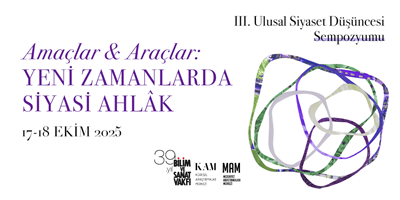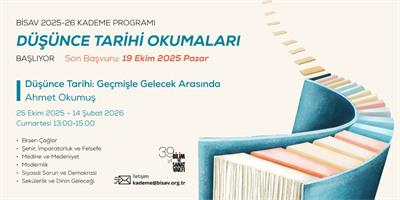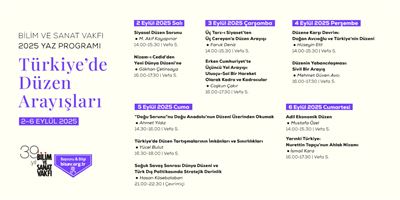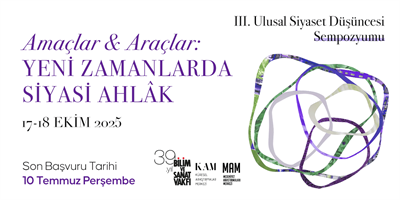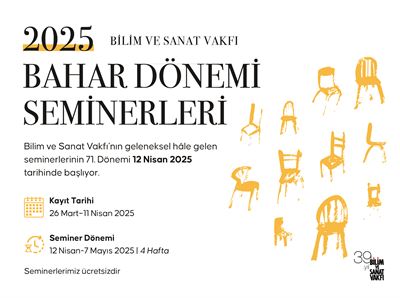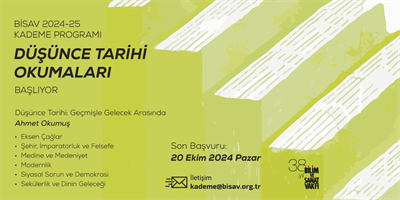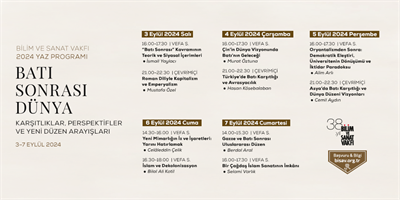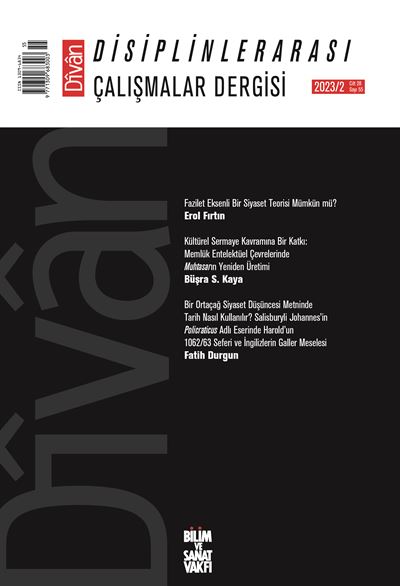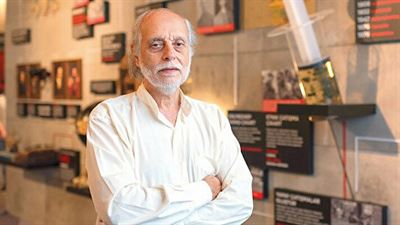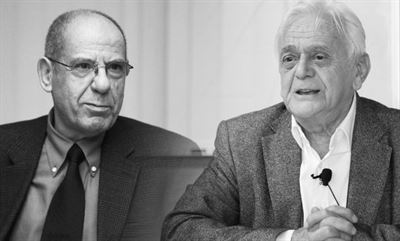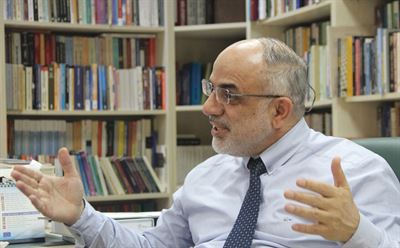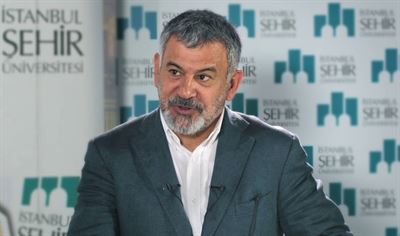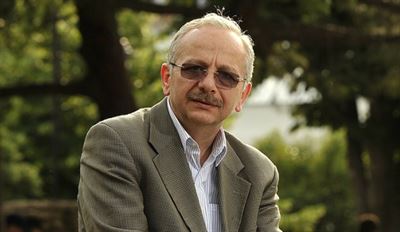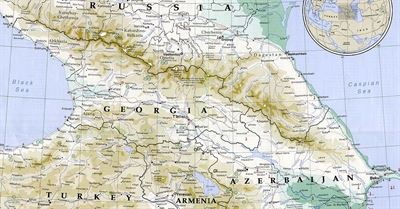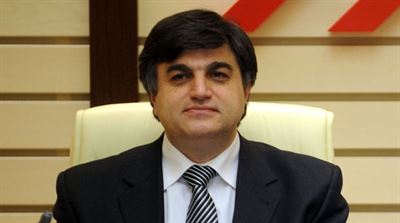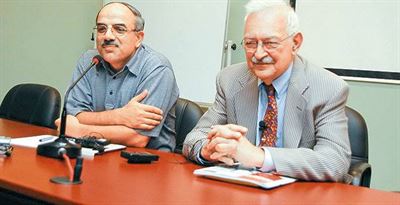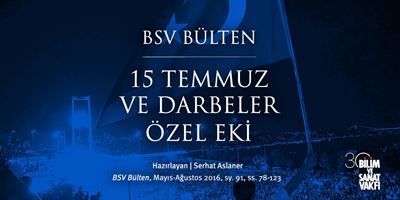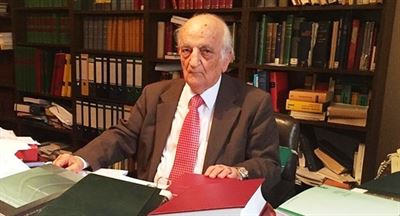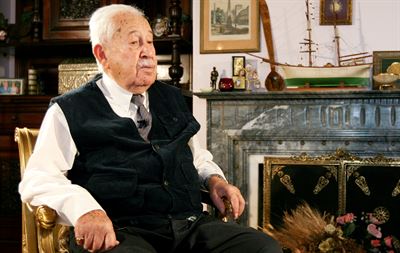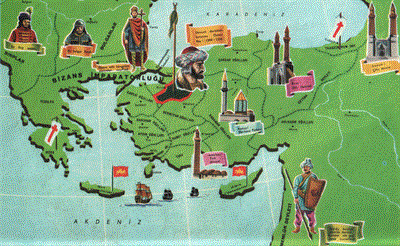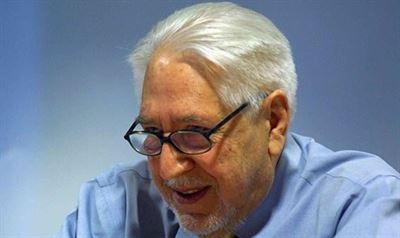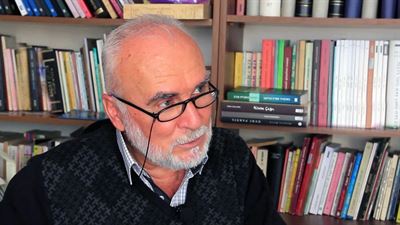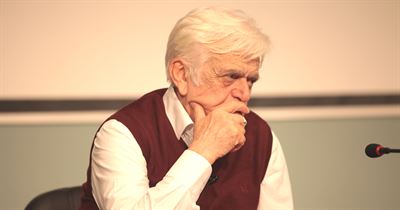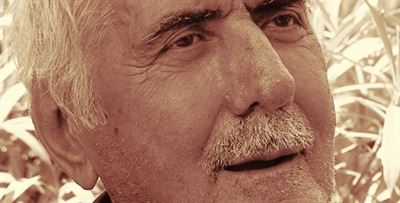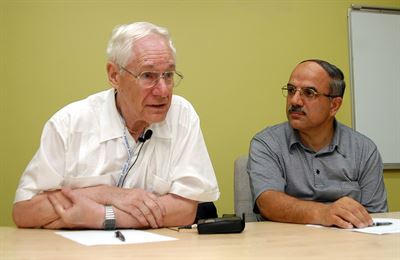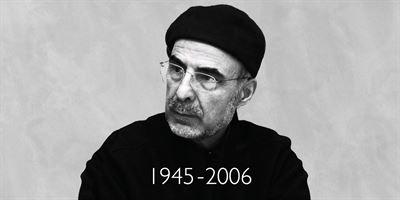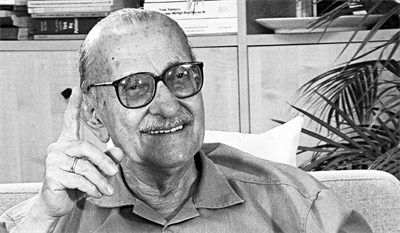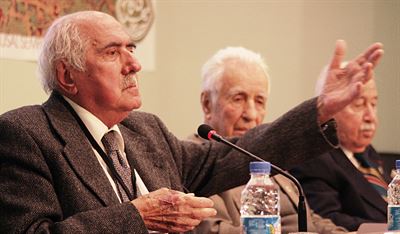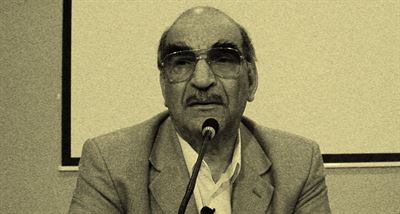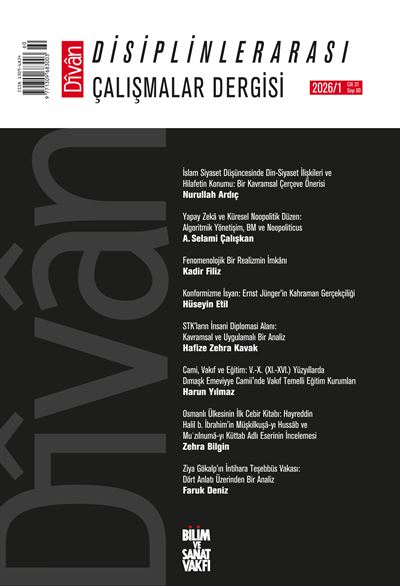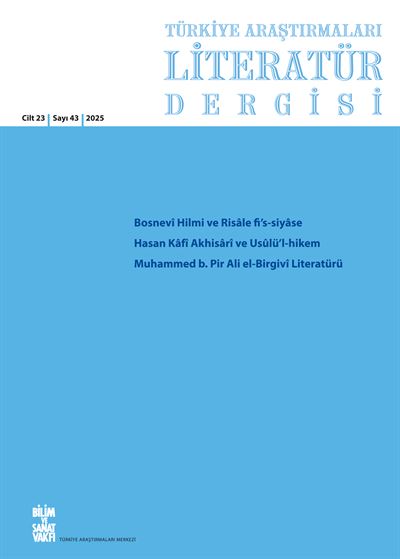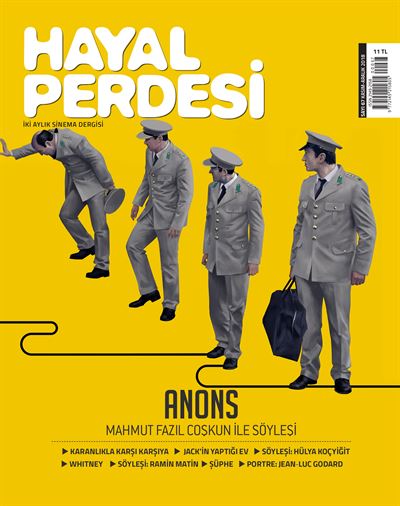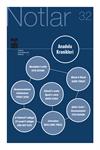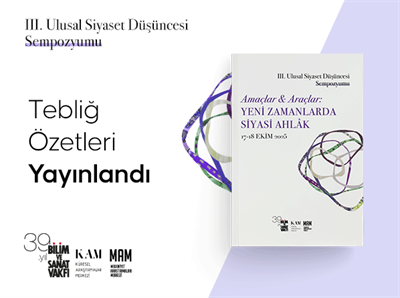
MAM ABOUT

The Center for Civilizational Studies (MAM) is the branch of the Foundation for Sciences and Arts where interdisciplinary studies are conducted from a comparative and ‘civilizational’ perspective in such fields as philosophy, history, natural and social sciences, and Islamic sciences.
The vantage point of the Center for Civilizational Studies is the idea that civilizations are the main theoretical and practical bases that shape both individual and social existence. Every civilization gets crystallized with the systematic responses it produces to universal questions on being and existence, knowledge-epistemology and values, out of which it constructs a social cosmology, which in return shapes the social-historical reality of that civilization. The systematic responses offered for universal questions provide a particular civilization with coherence and continuity in the intellectual sphere while the social cosmology constructed as such makes concrete and embody this civilizational mindset characterized by coherence and continuity in the sphere of historical reality. Thus functioning as a source of identity and the main frame of reference for their members, civilizations act as an integral part of both our practical orientations and theoretical analyses.
The ultimate goals of the Center for Civilizational Studies include supporting the scientific and comprehensive analyses of the heritage of world civilizations in general, and contributing to the study and reproduction of the main contours of our own civilization, in particular.
In line with these objectives, the Center for Civilizational Studies organizes and supports research projects, workshops, reading groups, symposia and national and international conferences in different topics of interest to the Center. It also contributes to the academic world by publishing the proceedings of some of these conferences.
In this context, MAM’s Divan Lectures provide an opportunity for both local and international scholars and intellectuals to share their research and ideas; the monthly Tezgahtakiler series hosts authors of newly published books and recently completed MA and PhD dissertations, providing them with the opportunity to get feedback on their original work. The Center also shares accumulated wisdom in its own fields of interest through other activities, such as workshops, reading groups and specialized symposia. The transcribed versions of some of the discussions on topics of civilizational significance are also published as part of a series titled Notes.
MAM Colloquia 2002-2010
The Concept of Haq in the Qur’an Şakir Kocabaş • New Political Theories in the Islamic World in the Era of Globalization Ahmet Davutoğlu • Debates on Artificial Intelligence and Consciousness Şakir Kocabaş • The Moral Problems of Liberal Democracy Savaş Şafak Barkçin • From the Heart of a Poet of the Prophet: Busirî and His Kaside-i Bürde Mahmut Kaya • Islam and the West after September 11 İbrahim Kalın • Critiques of the Ottoman Millet System Macit Kenanoğlu • The Islamic Revival Tradition and Musa Carullah Mehmet Görmez • American Studies on Islam Bruce Lawrence • American Studies on Middle Eastern Women Miriam Cooke • Maturidi and His Kitab al-Tawhid Bekir Topaloğlu • The Concept of Country in Islam Ahmet Özel • Ibn Taymiyya’s Critique of Avicenna Yahya Michot • Messianic Expectations in Early Islamic History Hayrettin Yücesoy • Resisting Global Domination Richard Falk • Gandhi and Islam Fred Dallmayr • Islamic Science: The Future and Present of a Debate Seyyed Hossein Nasr • Emerging Trends in Islamist Thinking Seyyed Vali Rida Nasr • Empire or Cosmopolis: Civilization at the Crossroads Fred Dallmayr • Christian Cosmology and Heresy in Medieval Europe Cherly Riggs • The Medical, Moral, and Philosophical Issues in Human Cloning İlhan İlkılıç • Civilization and Deep Culture Johann Galtung • Aspects of Islamic Thought in Southeast Asia and Present Cultural Situations Osman Muhammadi • The Modern Psychiatric Paradigm Medaim Yanık • Researching Jesus: Ethical, Spiritual, and Socio-Political Reflections Ian H. Henderson • The Problem of Awakening in the Western Arab World: Tunis, Algeria, Morocco Mustafa Murabit, Khalid Hajji • Religion, Identity, and the Recognition of Difference Adam B. Seligman • Aspects of Islam in the United States Akbar Muhammad • Islamic-Ottoman Science in Northern Africa Mahdi Abduljavad • The Subject and Power in Michel Foucault Brian Silverstein • Genetics: The Fate of the Modern World? İlhan İlkılıç • The Contemporary Significance of İbn Khaldun’s View of History and Society Muhammad Abid el-Jabiri • Islam in Europe: New Developments Necdet Subaşı • Worldliness or Secularism? Pervez Manzur • Epistemological Bias in the Natural and Social Sciences Abdulwahab Elmessiri • The Foundations of Salafi Thought in the 20th Century Beşir Nafi • Teaching Islam in Germany: Demands, Debates, Practices Yaşar Sarıkaya • Islamic Philosophy in Iran: Yesterday and Today Abuzer Dişkaya • Sufism: An Ancient Way in the Modern World Muhyiddin Shakour • Muslim Reconstructions of Knowledge and the Re-enchantment of Modernity Ali Hassan Zaidi • Daqîq al-Kalâm: The Islamic Approach to Natural Philosophy Muhammad Bâsil al-Tâi • An Introduction to Islamic Ontological Metaphysics İhsan Fazlıoğlu • A Post-Revolutionary Intellectual Movement in Iran: Case Study of Abdalkarem Soroush Heydar Shadi • What Have We Learned from the 20th Century and What Do We Need to Know in the 21st Century? Seyyed Hossein Nasr • A General Overview of Ottoman Intellectual Life İhsan Fazlıoğlu • Modern Islamic Thought in Iran Mushtaq Al Hulo • The Concept of the Perfection of the Universe in Avicennian Philosophy Mehmet Cüneyt Kaya • The Modern Conception of Tafsir during the II. Constitutional Period: The Cases of Sırat-ı Müstakim and Sebilü’r-Reşad (1908-1914) Suat Mertoğlu • The Construction of the Subject in Western Thought: Continuity and Change in the Modern Subject Yaylagül Ceran • Shah Waliyullah Dihlawi’s View of Ijtihad Özgür Kavak • The Problem of Meaning in Arab Linguistics: The Case of Abdulqadir Jurjani Sedat Şensoy • The Philosophy of Averroes Hüseyin Sarıoğlu • Continuity and Change in Islamic Political Thought: Caliphate Pamphlets İsmail Kara • On the Concept of the Common Transmitter (Madar) in Western Hadith Studies and the Case of Juynboll Halit Özkan • Şerif Mardin between Orientalism and Occidentalism Alim Arlı • Basic Political Concepts in Islamic Thought Hakkı Kocabaş • Observations on South Africa Mehmed Aytekin, Abdullah Yormaz, Zülküf Oruç • Avicenna, Aquinas, and the Epistemology of Transcendence Muhammad Azadpour • Mulla Sadra’s Ontology and Non-Subjectivist Epistemology İbrahim Kalın • Islamic-Byzantine Relations Casim Avcı • Contemporary Islamic Sciences and Tafsir Mehmet Paçacı • Muslim-Christian Relations in the US after September 11 Heidi Hadsel, İbrahim M. Abu-Rabi • The Concepts of Islamic Jurisprudence and Modern Approaches in post-Tanzimat Ottoman Thought Sami Erdem • Creation in the Qur’an: The Creation of Spaces and Matter Şakir Kocabaş • Avicenna’s Legacy M. Cüneyt Kaya • The Ulema’s Position in Different State Traditions: the Ottoman Empire and the İdil-Ural Region Selim Karahasanoğlu • The Canonization of al-Bukhârî and al-Muslim Jonathan Brown • A Theoretical Intervention into the Left: The Birikim Journal Before 1980 Hediyyetullah Aydeniz • Zarathustra: His Life and Legacy Asiye Tığlı • The Ottoman People’s Traditional View of Islam and its Sources Hatice Kelpetin Arpaguş • Theories of Philosophical Anthropology and the Question of the Meaning of the Human Being Yaylagül Ceran • The Institutionalization of the Hanafi School in Ibn Abidin Şenol Saylan • The Structure of the Turkish Language Hüseyin Rahmi Göktaş • The Intra-civilizational Struggle for Domination in the West and the Conception of the Extra-civilizational Enemy Asena Demirer • Between Desire and Truth: The Narrative Resolution of the Modern-Traditional Dichotomy in Asmalı Konak Zeynep Feyza Akınerdem • Two Concepts of Freedom in Ottoman-Turkish Modernization: Freedom and Liberty Yıldıray Oğur • Jurists’ Conception of Practice during the Process of the Formation of Islamic Legal Schools Halit Özkan • What Can Deconstruction Say to Islamic Thought? Recep Alpyağıl • Interpretation in al-Ghazalî and Averroes Zeynep Gemuhluoğlu • Seyyed Sharif Jürjanî’s View of Interpretation: Its Metaphysical, Logical and Linguistic Foundations Ömer Türker • From Ankara to Taşralı, From Kuyucaklı Yusuf to Tutunamayanlar: Romantic Anti-Capitalism, Melancholy, and Contradiction: A Critical Evaluation Fırat Mollaer • The Status of Mores in the Hanafî School: The Case of Ibn Âbidîn’s “Örf Risalesi” Ömer Faruk Ocakoğlu Eschatology in Avicenna, al-Ghazâlî and Averroes Ahmet Çapku • Imam Shafii and the Institutionalization of Legal Thought Bilal Aybakan • The Dynamics of Conflict: On the Incompatibility of Religion and Philosophy Fehrullah Terkan • Nurettin Topçu’s Life and Intellectual Struggle: A Sociological and Intellectual Analysis Fırat Mollaer • How Can the Relationship Between Religion and Science be Studied? İshak Arslan • The Theorization of Veiling Süheyb Öğüt • Hegel’s Philosophy of Religion Tacettin Ertuğrul • Being and Essence in Mulla Sadra’s Ontology Sümeyye Parıldar • Hans Küng’s Concept of Global Ethics Hümeyra Karagözoğlu • The Status and Significance of Seville in the Political and Cultural History of al-Andaluş Cumhur Ersin Adıgüzel • Levinas: Ethics as First Philosophy Özkan Gözel Quentin Skinner’s Method of Reading the Classics H. Murat Köse • The Debate over the Classics among the Ottomans Ramazan Kaplan • The Missing Link in Turkish Thought: Political Kemalism, Socialism, and Islamism Yasin Aktay • Main Questions in Turkish Thought Kurtuluş Kayalı • The Main Parameters of Turkish Modernity Hasan Bülent Kahraman • The Question of Modernization and Traditional Culture in the Late-Ottoman Period Selçuk Akşin Somel • The Dynamics of Formation in Turkish Thought and the Lost Positions Süleyman Seyfi Öğün •
SECULARIZATION Secularization: Concept and Literature Nurullah Ardıç • New Paradigms on the Relationship between Modernization and Secularization Ali Köse • Religious Life in the Modern City Nevin Meriç • Ottoman Intellectuals and Social Darwinism Atila Doğan • Ibn Khaldun’s Historical Methodology Yavuz Yıldırım • Stages of Social Development in Macro Historians Mustafa Özel •
CONTEMPORARY THEORISTS Michael Mann and His Theory of Power Nurullah Ardıç • Michel Foucault and His Theory of Power Ferda Keskin • Pierre Bourdieu: The Logic of Practices, Habitus and Field Theory Güney Çeğin • Anthony Giddens and His Theory of Structuration Ümit Tatlıcan • John Rawls and Political Liberalism M. Fevzi Bilgin • Charles Taylor: Meaning, Morality, and Modernity Ahmet Okumuş • Global Communications Revolution and Marshall McLuhan Fahrettin Altun • Thomas Kuhn and the Question of the Sustainability of Scientific Progress Hüseyin Gazi Topdemir • Robert Nozick and His Theory of Justice Rabia Sağlam • Modernists’ View of Classical Theology M. Sait Özvarlı, İlyas Çelebi • Qur’an Commentary in the Modern Period M. Suat Mertoğlu, Ömer Türker • The Rupture in Traditional Thought: Hadith and Sunna in Ottoman Thought İbrahim Hatipoğlu, Mehmet Özşenel • The Status of the Study of Hadith in the Indian Sub-continent During the Transition to the Modern Period Mehmet Özşenel • Fiqh between Revival and Modernism Eyyüp Said Kaya • From Fiqh to Islamic Law: The Transformation of Ottoman Legal Thought Sami Erdem •
PHILOSOPHY IN TURKEY/TURKISH İsmail Kara, Ş. Teoman Duralı, Ömer Naci Soykan, Doğan Özlem, Zeynep Direk, Ahmet Arslan, İhsan Fazlıoğlu •
POST-KANTIAN DEBATES ON METAPHYSICS Immanuel Kant Aliye Kovanlıkaya • G.W.F. Hegel Enver Orman • Meinong and Brentano Uğur Ekren • Edmund Husserl Kasım Küçükalp • Martin Heidegger Kaan H. Ökten • Ludwig Wittgenstein Ali Utku • Henri Bergson Ali Osman Gündoğan • Islamic Jurists’ View of the Sunna in the Early Period İshak Emin Aktepe • Istıshâb in the Literature on the Methodology of Islamic Jurisprudence Nurhayat Haral Yalçı • A Reformist Approach to the Methodology of Islamic Jurisprudence: al-Shawkani Nail Okuyucu • The Impact of the Atomist View of the Universe: An Analysis of the Relationship between Kalam and Fiqh Hasan Hacak • Sunna in Abu Hanifa’s View of the Methodology of Islamic Jurisprudence Metin Yiğit • Al-Shafii’s Concept of Analogy Soner Duman • The Role of the Jurist Transmitter in Hadith Transmission Hamdi Çilingir • ‘The Right Never Disappears’: Obligatio Naturalis in Roman, Turkish, and Islamic Law Mustafa Demiray • The Madrasa System in the Ayyubid Period: Damascus during al-Malik al-Muazzam’s Reign Harun Yılmaz • From Ikhwan to Juhayman: Saudi Arabia and Wahhabism Mehmet Ali Büyükkara •The Bureaucratization of the Ulema in the Ottoman Empire (1300-1600) Abdurrahman Atçıl • The Fatwa Collections with Nuqûl and Mehmed Fıkhî’s el-Ecvibetü’l- Kâni’a Emine Arslan • Aļ-Shawkani and His al-Sayl al-Jarrâr Sümeyye Onuk • Emrullah Efendi’s Writings on Philosophy and Science in the İkdam Newspaper Meryem Üke • An Evaluation of the Conception of Philosophy in Islamic Thought in the Early Period Hikmet Yaman • The Effects of Ibn Arabi’s Philosophy on Contemporary Turkish Thought Özkan Örtürk • Tafsir, the Sufi, and the State: A Study on Kenz-i İhlâs M. Nedim Tan • The Ikhlas Chapter and Tafsir Tradition from Avicenna to Elmalılı A. Faruk Güney •
INTELLECTUAL HISTORY One Figure, Many Narratives: Alexander the Great in the Context of Inter-culturalism Gülçin Tunalı Koç • Thinking Theory and Practice Together: The Manifestations of the Surety Contract in Ottoman Law Osman Safa Bursalı •
SOCIAL SCIENCES Colonialism, Arab Nationalism and the Caliphate Question in the Early 20th Century Nurullah Ardıç • Oriental Societies in Karl Marx and Marx Weber Lütfi Sunar • ‘All That is in the World is Possible’: On the Evolution of ‘Possibility’ in Islamic Philosophy M. Cüneyt Kaya • Fakhr al-Din al-Razi’s Interpretation and Critique of Avicenna Eşref Altaş • Kripke’s Skeptical Wittgenstein and Counter Arguments Sümeyye Parıldar • The Nature of Philosophy Ömer Mahir Alper • The Metaphysical Foundations of Freedom in Leibniz’s Philosophy Erdal Yılmaz • John Searle’s Theory of Consciousness Eyüp Süzgün • Philo of Alexandria as a Pioneer of Christianity Dursun Ali Aykıt • God in Kantian Philosophy Mehmet Günenç • The Tradition of Commentary on Hidâyetü’l-Hikme and Mevlânâzâde’s Hidâyetü’l-Hikme Commentary Abdullah Yormaz • The Possibility of Doing Authentic Philosophy in Turkey and the Philosophy of Religion: An Investigation through the Case of Paul Ricoeur Recep Alpyağıl • Man in Whitehead’s Philosophy Yaylagül Ceran • The Teleological Dimension of Avicennian Philosophy Hatice Toksöz • Being and Man: The Reconstruction of a Conception in the Case of Kemalpaşazade Ömer Mahir Alper
SEMINARS

As the most traditonal activity of BISAV, the courses take place in every fall and spring of a year.
MORE INFO

